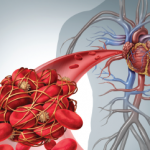CHICAGO—Although medical treatments for addiction have been proved effective, they are not used often enough, said Kenneth Stoller, MD, during a session at the 2019 ACR State-of-the-Art Clinical Symposium, held April 5–7. These treatments bring health benefits that extend beyond addiction, he said. Dr. Stoller, assistant professor of psychiatry and behavioral sciences at Johns Hopkins…









